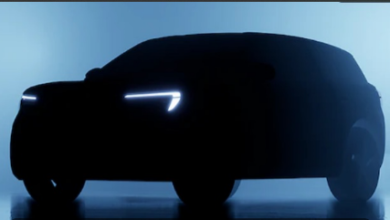UAW Escalates Strike With Ford and GM as Negotiations Stall

The United Auto Workers (UAW) has intensified its strike with two major automakers, Ford and General Motors, as negotiations have reached an impasse, marking the 15th day of the labor dispute. UAW President Shawn Fain announced on September 29 that approximately 7,000 additional members would join the strike, including 4,600 from Ford’s Chicago assembly plant and 2,300 from GM’s Lansing Delta Township plant. This brings the total number of UAW-represented members on strike to 25,000.
READ: Firework-Related Ocular Trauma Higher in Areas Without Firework Bans
UAW
As a consequence of the expanded strike, the production of several prominent brands, including Buick Enclave, Chevrolet Traverse, Ford Explorer, and Lincoln Aviator, will come to a halt. Despite the UAW claiming a standstill in negotiations, GM contends that it has not received a “comprehensive counteroffer.”
Gerald Johnson, GM Executive Vice President for Global Manufacturing, criticized the escalation of strikes, stating that it is for headlines and not indicative of real progress. He emphasized the growing negative impact on customers and the importance of negotiating in good faith. Meanwhile, Stellantis will remain unaffected by the strike escalation, as the company has presented substantial counteroffers.
While contract talks are set to continue, President Fain affirmed the UAW’s commitment to its fight for a record contract. The strike expansion follows last week’s escalation to 38 GM and Stellantis parts and distribution facilities in 20 states. The UAW, demanding significant pay increases, a 32-hour work week with full pay, pension restoration, cost-of-living adjustments, and inflation-protection benefits, has seen its pay demands reduced to about 36 percent from the initial 46 percent proposal.
Tensions at the picket lines have led to instances of violence, with President Fain attributing blame to GM and Stellantis. The UAW cited specific incidents, including assaults and alleged gun threats, condemning the companies for enabling violence against striking members. In response, Stellantis rejected the UAW’s characterization of incidents, accusing the union of making misleading and inflammatory statements.
President Biden expressed support for the UAW’s demand for a 40 percent pay increase during his visit to a picket line in Michigan. Former President Trump, speaking at a non-union factory, criticized President Biden and expressed skepticism about the strikes achieving significant results.
The UAW strike, which began after the union’s contract expired on September 14, revolves around demands for improved pay and working conditions. Contract talks will continue as both parties navigate a complex negotiation landscape.




